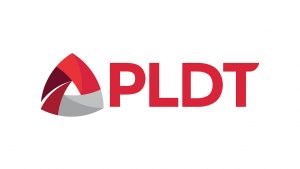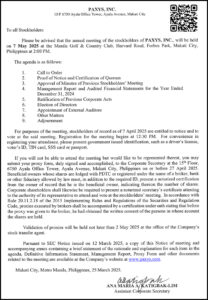PLDT: Gov’t should address connectivity in remote areas
FINANCIALLY unviable areas fall under the purview of the government, according to the PLDT group, in response to a Senate bill that seeks to require public telecommunications entities and internet service providers to cover all unserved and...

FINANCIALLY unviable areas fall under the purview of the government, according to the PLDT group, in response to a Senate bill that seeks to require public telecommunications entities and internet service providers to cover all unserved and underserved areas within a three-year period.
“Projects in remote or missionary areas — including areas where armed conflict exists — that are not financially viable are the natural domain of government as provider of basic infrastructure and social services for development and the citizens’ well-being,” PLDT, Inc. and Smart Communications, Inc. President and Chief Executive Officer Alfredo S. Panlilio told BusinessWorld in an e-mailed reply to questions on Tuesday.
“PLDT has built extensive connectivity and fiber infrastructure that currently covers 96% of the entire country,” he added.
Senator Mary Grace S. Poe-Llamanzares’ Senate Bill No. 329, or the Better Internet Act, seeks to require all public telecommunications entities and internet service providers to extend and expand the service coverage of fixed and mobile internet service in all unserved and underserved areas “within three years from the effectivity of the measure.”
“PLDT will continue to partner with the government in enhancing connectivity for the Philippines and hopes that such partnership will maintain the distinct roles of government and the private sector separate so that the private sector can continue to serve the Filipino people and the country using private funds, while the government continues its role of providing the basic infrastructure and social services, including missionary projects,” Mr. Panlilio said.
The proposed measure requires the Department of Information and Communications Technology to identify unserved and underserved areas in the Philippines. The goal is to provide fast, reliable, secure, and affordable internet to Filipinos all over the country.
The bill also wants service providers to adhere to minimum standards for connection, reception, pricing, and billing practices to uphold and protect consumer rights.
“Our mission is to keep our countrymen connected by ensuring that our network is reliable and accessible to more Filipinos, wherever they may be in the country,” Mr. Panlilio said.
“With price points that provide real value for money, our fixed and wireless internet services are also designed to cater to all segments of the market,” he added.
The group said it has the country’s most extensive fiber network, at 803,000 kilometers as of March 2022.
PLDT’s mobile arm Smart Communications has deployed, as of end-March, around 76,600 base stations nationwide to serve its users, it noted.
“Network-related initiatives made up the bulk of the P89 billion spend for 2021. This brings total capex (capital expenditure) spent over the last 10 years to P518.5 billion. Capex guidance for 2022 is P85 billion,” the group also said.
Citing a report from Ookla, the network testing company behind Speedtest, the group said it swept the Ookla Speedtest Awards in all the quarters of 2021.
“Ookla declared Smart as the winner of its Speedtest Awards for (third quarter and fourth quarter of) 2021 with a speed score of 201.95, median download speed of 218.82 megabits per second (Mbps) and a median upload speed of 22.46 Mbps,” it noted.
“Ookla also found that PLDT is the country’s fastest broadband for the same period with a speed score of 77.24, top download speeds of 203.97 Mbps and top upload speeds of 217.07 Mbps.”
Hastings Holdings, Inc., a unit of PLDT Beneficial Trust Fund subsidiary MediaQuest Holdings, Inc., has a majority stake in BusinessWorld through the Philippine Star Group, which it controls. — Arjay L. Balinbin


















